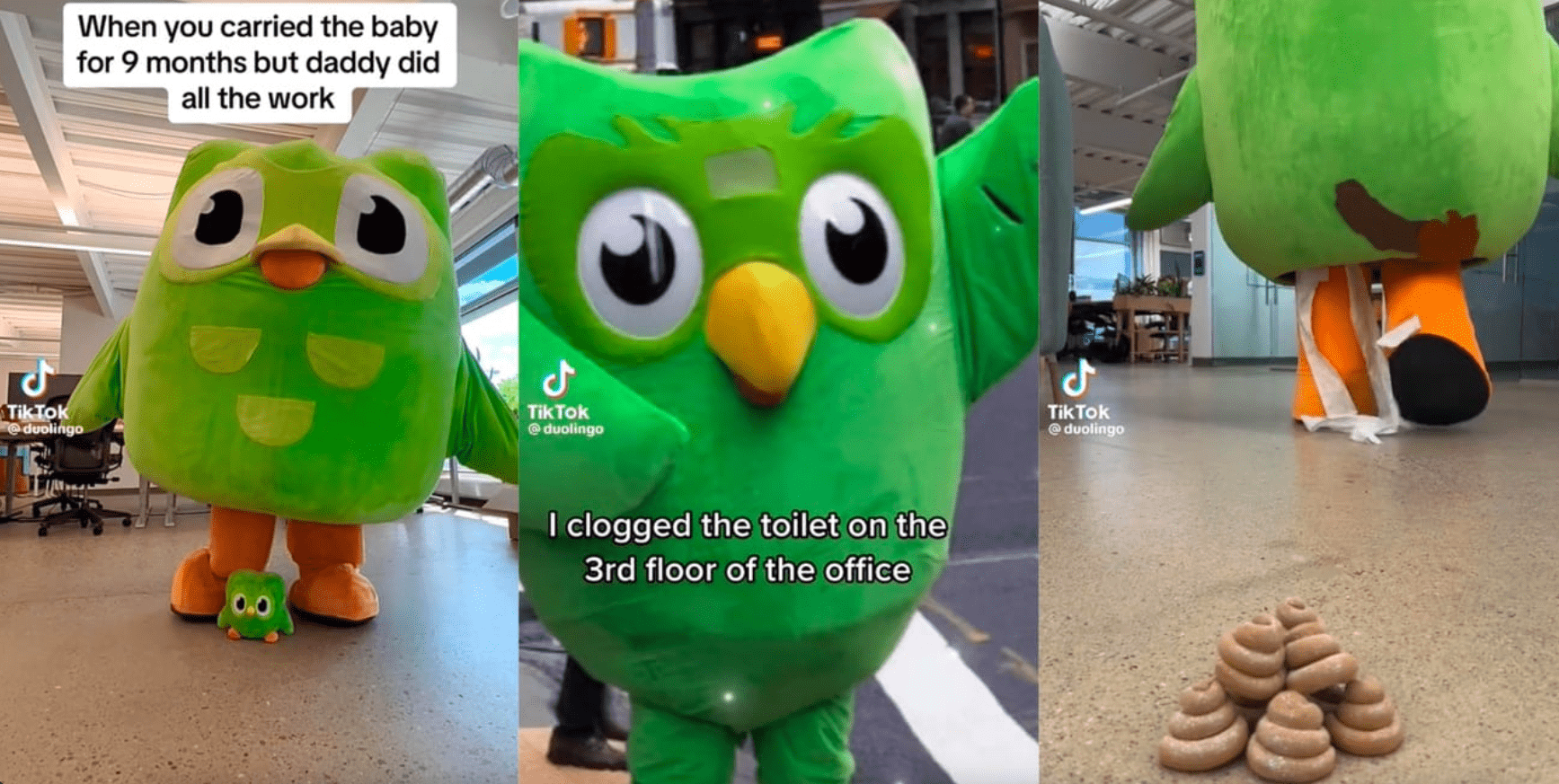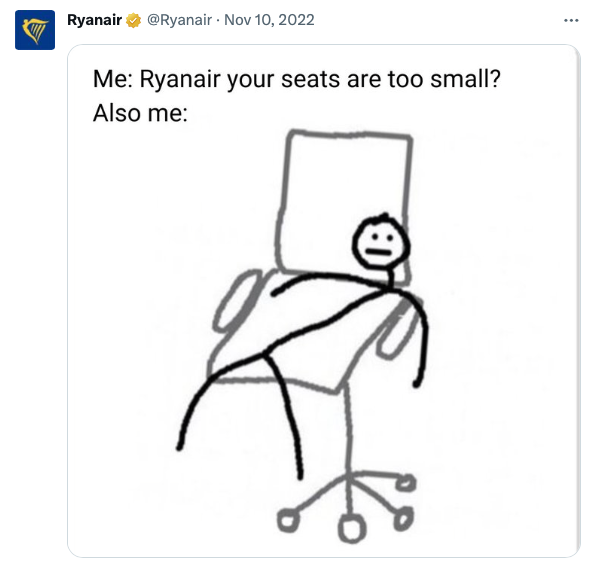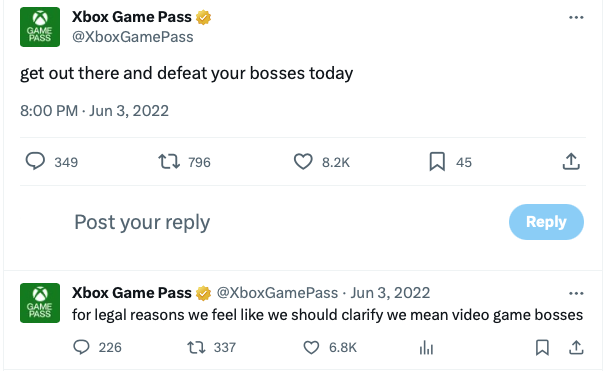Method in the madness: The 'whys and hows' of brands and their relatability
In the ‘unhinged’ world of social media, what’s the reasoning behind some brands being ‘deliberately’ this way – and what consequences might come from it?
The Duolingo owl posting suggestive ‘selfies’.
Oreo cookies creating masterful 30+ layer dunks with beans and other foods.
RyanAir ‘owning’ Margaret from seat 47C for daring to ask about legroom.
Welcome to the world of brands on social media. A world that, bit by bit, is getting increasingly unhinged on social media.
And we use that word deliberately. As deliberately and as carefully, in fact, as the brands in the examples above have been in crafting their content. Because it’s not just a casual descriptor, but a bonafide technique and tactic in the social space. By being unhinged, the aim is to break the fourth wall and lean head-first into the language of the internet to appear relatable and human-like. It’s all very…ahem… meta.
But it takes different forms. It might be jumping on a meme, cultural item or the wider mood of the nation. Sometimes, it’s using shock value to drum up engagement to gain reach and notoriety.
Here are a few examples:




But in our world of structured, workshopped-to-frig, strategic marketing… where’s the value in all of this chaos?
Well, the first thing to make clear is that it’s not really chaos. There’s method in the madness. Quite a lot of method, actually. There’s acute planning masquerading as uncensored spontaneity.
Brands spend thousands of pounds, and spend hundreds of hours trying to look this ‘off-the-cuff’. At the risk of being even more of a party pooper than Duolingo owl in that pic, the reality is that each of these brands have legal teams, marketing directors, a wider operations function; multiple tiers of sign off and approvals before anything goes live.
The brands that do it well make it look entirely reactive, but that look is ultimately the result of a delicately choreographed (and impressively rapid!) operational dance. The appealing idea of the ‘rogue social media manager’ is little but a ruse - brands are actively ‘unhinging’ themselves, acting with purpose and cause.
Question is, what is that cause?
From all of the results to date, it’s clear that there are plenty of perks to social media managers breaking the fourth wall and speaking as a person rather than a corporate entity. While it could be perceived as a meta and self-referential approach, it’s also relatable. As such, it helps personify a brand. This relatability could lead to a viral social post, garnering new followers for brands, as well as increased engagement by way of likes, shares and comments. And, in this pay-to-play world with increasing ad-costs, that’s more valuable than ever.
In the case of Duolingo on TikTok, the more unhinged Duo the owl mascot behaved, the more new users the app saw. As such, it’s having a real, business-relevant impact every single time their content makes waves.
However, unhinged social doesn’t come without cons.
While brand relatability may be exciting for some social users, others will undoubtedly either find it offensive, or just baffling.
How relatable a brand can be depends on brand history, perception and industry - it’s not a game everyone can play. If done badly, it can lead to PR disasters, a reduction in brand credibility, and the potential of turning off your current customer base.
Ultimately, virality isn’t always worth the risk.
The skill of a social media team is in the ability to read the room - even if the room, by its very nature, is constantly shifting and metamorphosing into new shapes and forms. It’s a skill not to be taken lightly, particularly when a brand might be tasked with delivering consistency of message despite having different audiences on different platforms that require different strategies and objectives.
At that point, the unhinged tactic really does become unhinged. Only time will tell if it’s here to stay, or is just another fast-breaking wave on the high seas of social.
Shauna Madden is head of social and paid media at ilk Agency. Read the original blog.


